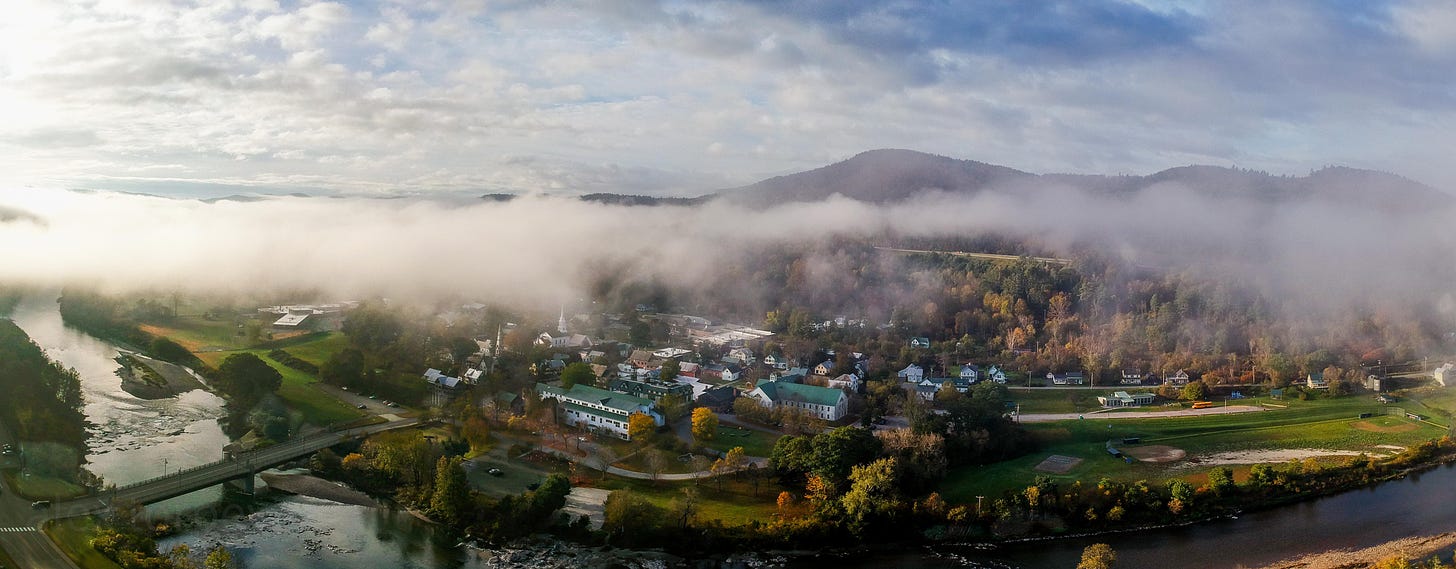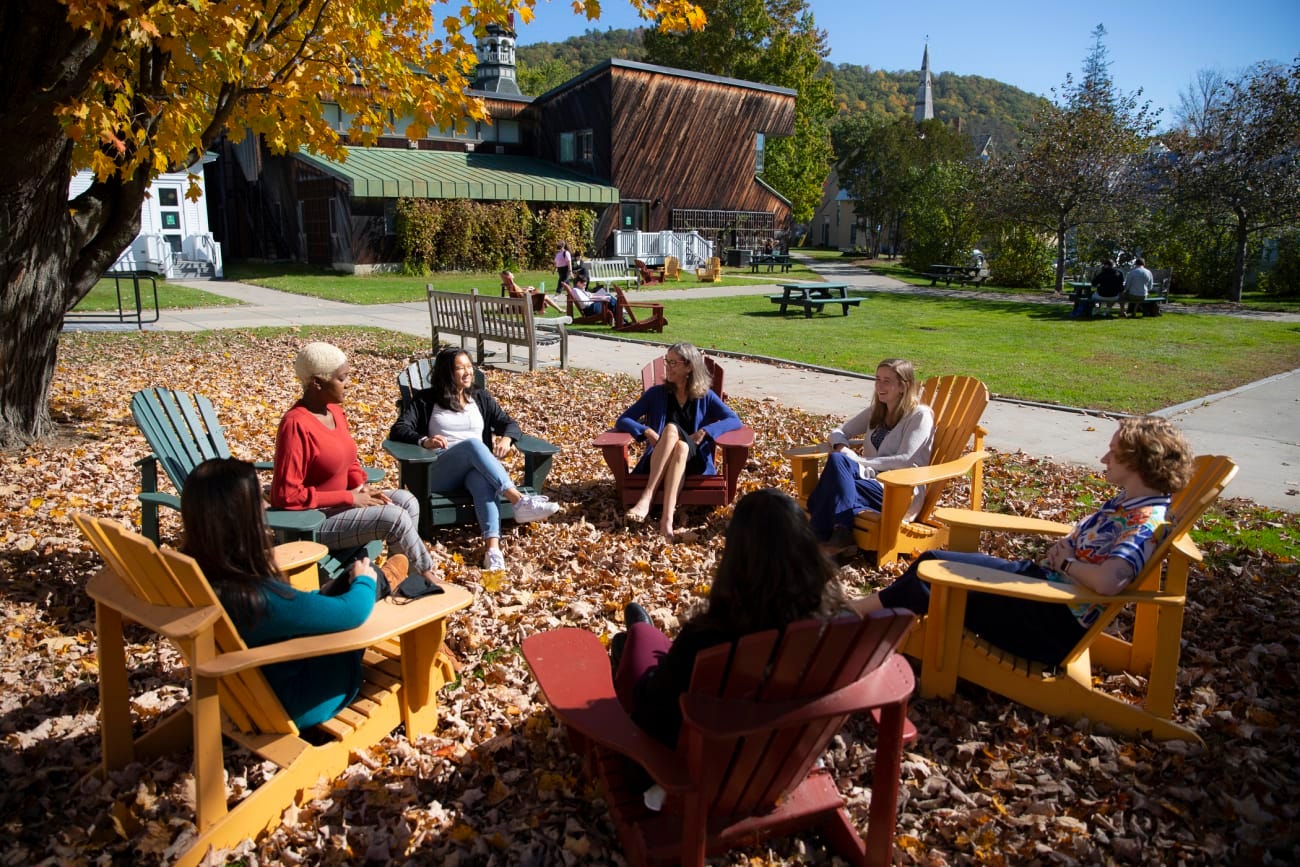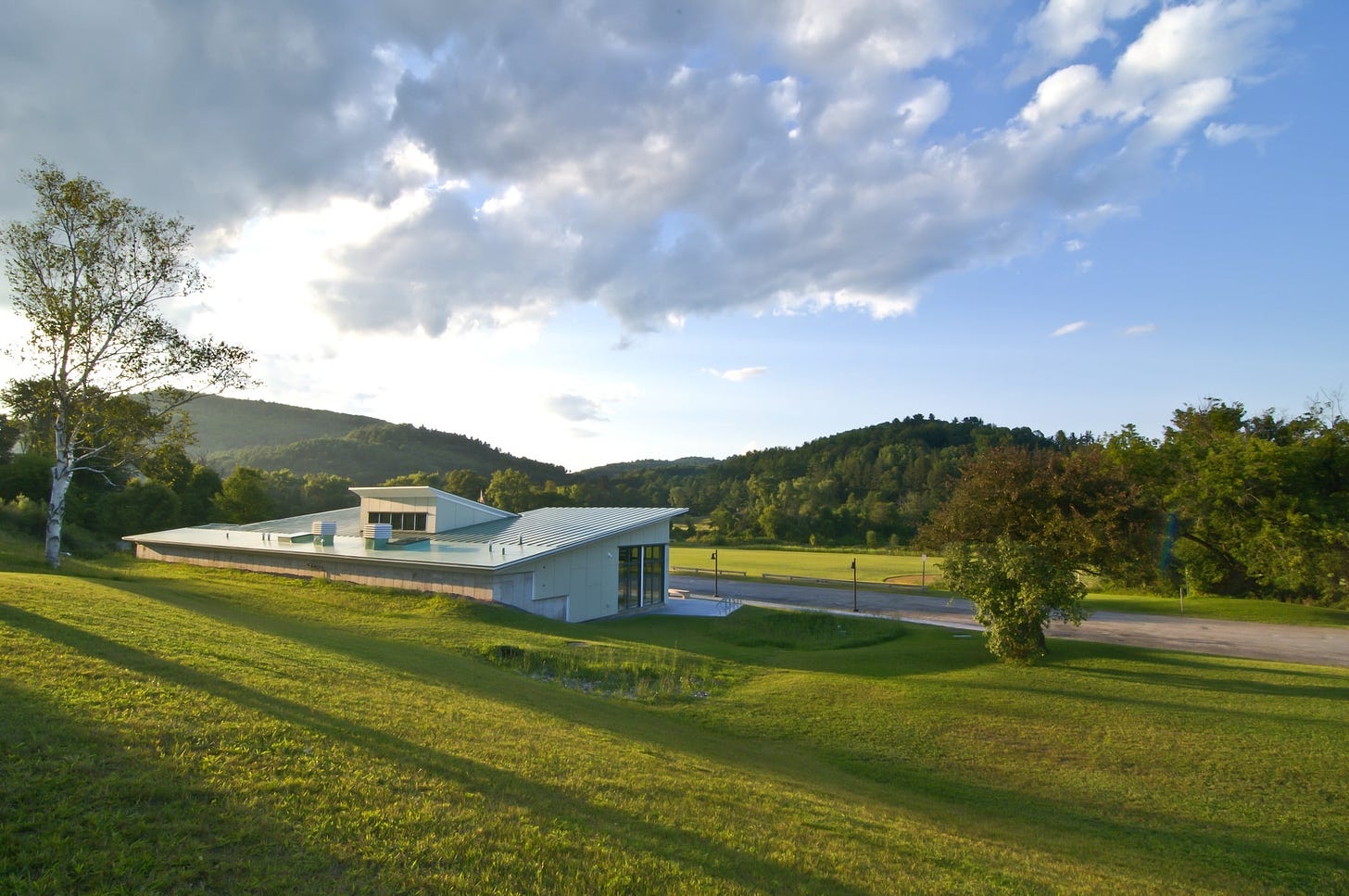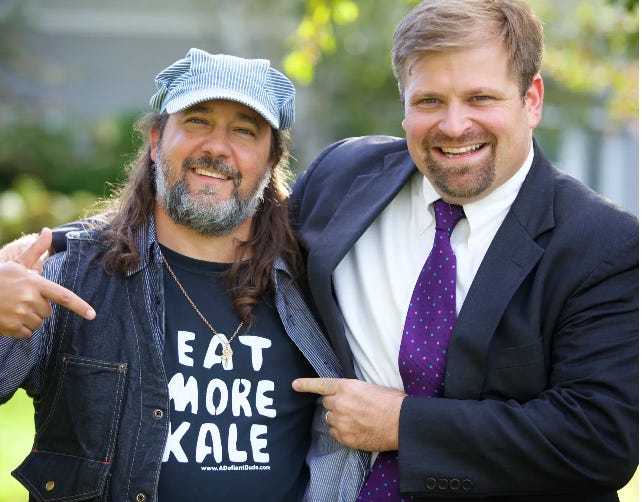Learning Law & Policy In Vermont's Woods
The Best Kept Secret: Of Kale, Small Towns, no GMO's, Public Policy, and Good Mental Health

Let’s start with Vermont. It’s the land where you can find yourself, find community, be known for who you are, lower your anxiety by stepping off the fast track of urbanism, breathe fresh air, just breathe, perhaps go on a retreat from whatever is pressing on or ailing you, and, surprise, learn how to practice law and craft public policy as effectively as if you were in the big city. Law and policy in the woods is a thing known to nearly 9,000 proud alumni of Vermont Law and Graduate School. It may be the best kept secret in the world of graduate school education — not just in the United States but around the world. Hyperbole? Maybe not.

Witness some of the people I’ve met who’ve decided to come to the little town of South Royalton, Vermont to pursue a juris doctor, LLM, or master’s degree. Their visits, virtual or in person, to this rural school of eighteen buildings that look mostly like charming New England homesteads, make their hearts sing. Replete with lovely front porches, brightly-colored Adirondack chairs, wide open green spaces, the forested landscape, blue skyscapes flecked with overstuffed clouds, the meandering White River easing its way past, and lovely green hillsides just a stone’s throw from campus, this school feels pure and unique. The mental health benefits seem to leap higher the longer the fresh Vermont air seeps into your lungs. People from around the world smile. Local community members want to know your name. Within the past eighteen months, I’ve met students and faculty who have come from the Ivory Coast, Puerto Rico, Zimbabwe, Brazil, Ghana, Mexico, Nigeria, China, France, Italy, and most of the fifty United States. It’s a diverse mix of people who co-mingle easily because of their shared values.
Somehow, VLGS students have intentionally sought out and found this little gem of a school to enjoy life while learning law and policy in a community that actually knows them by name. Faculty and staff members integrate with students to care for and educate them in ways that go well beyond the classroom. Outdoor activities like skiing and snowshoeing, running, hiking, gardening, bicycling, and walking the country roads are more ways everyone intersects and connects. Alumni throughout Vermont and nationally want to help by serving as student mentors and networking as career guides. I’ve never heard a VLGS graduate decline a request from a student to take a call, serve on a panel, or offer words of advice. This school has a community that cares. Once again, it makes the heart sing and the oxytocin and serotonin feel-good brain chemicals flow strong, bringing happiness to those who enter its welcoming realm.
I recently met a student from Zimbabwe who came to VLGS because of its rural character. Interestingly, after living in the bush as a safari guide for three years, she was concerned that going to an urban law school with its pollution and congestion would be detrimental to her overall health. Another student, from Ghana, saw photos of the White River, the beauty of the Vermont rural landscape, the small-town nature of the South Royalton village and simply fell in love. She told me South Royalton felt so much like her home in Ghana she simply knew it was right from thousands of miles away. Fast forward a year and she’s still smiling and thrilled she decided to come to Vermont. Student stories abound, and they warm my heart.
Still another student told me that coming from Europe to the United States frightened her because she didn’t want to eat highly-processed food or foods containing Genetically Modified Organisms (GMO’s) or cancer-causing pesticides. Who thinks about these things when graduate school is the goal? Well, some people do. And those who want to lead healthier lives while learning the law and public policy choose Vermont. It’s a place where buying a Community Supported Agriculture (CSA) share at a local vegetable farm and having ready access to grass-fed organic beef, lamb, chicken, or pork is commonplace. Shopping at the South Royalton Food Coop opens a universe of locally-sourced, healthy options for meals and snacks. And if you want to buy straight from the farm, it’s only a mile or two up the road. Picking wild blueberries or apples and cutting flowers at the farm are also options. I can feel these students’ hearts relax and sigh as they walk through the fields and woods, beneath skies that embrace the school where academic rigor remains the order of the day. Put in the work, learn the law, develop and craft potent policy with people who care to change the status quo, make friends to last a lifetime, and enjoy a mentally and physically healthy lifestyle. That’s life at VLGS in a nutshell.
Oh, and where else can you find yoga classes during reunion weekends and on summer evenings outdoors on the gently-sloping grassy fields that merge with the muscular White River where fishing and swimming coexist? Or workout in a very cool, mod-designed fitness center powered by healthy bodies and solar panels that grace its rooftop? And where grabbing an inner-tube from the VLGS “Gear Shed” will set you up for a relaxing float with friends down the undulating currents of this river that flows so easily past the little school that teaches big ideas to empower its graduates to change the world.

Today, VLGS offers a three-year juris doctor degree, along with a one-year Masters of Legal Studies degree and a host of other masters degree programs that include Public Policy, Climate and Environmental Policy, and Energy Regulation and Law. It offers LLM degrees in Animal Law, Food and Agricultural Law, American Legal Studies, Environmental Law, and Energy Law. It houses the National Center on Restorative Justice and the Centers for Agriculture and Food Systems, Justice Reform, Environmental Advocacy, Environmental Justice, Legal Innovation, and Environmental Law — the first and most extensive in the nation. Institutes for Energy, Animal Law and Policy, and Environmental Field Studies are also part of the fabric of the place.
Clinical and experiential learning is cherished with the South Royalton Legal Clinic, founded by Dean Tom Debevoise and Professor Ken Kreiling in 1979, serving as a place where students practice law under the guidance of faculty mentors and seasoned lawyers. The Vermont Small Business Law Center helps small businesses in need of pro bono legal services, much like the South Royalton Legal Clinic helps underserved veterans and low-income families, women, and children in need of free legal services such as veteran’s benefits applications and appeals, and domestic violence and children’s relief from abuse matters. And the Maverick Lloyd School for the Environment embodies the values, domestic and international masters’ degree programs, faculty, and curriculum that have propelled Vermont Law and Graduate School to great heights since its earliest days back in 1972 when it was founded.
As for kale, where else can you find the below photo on any school’s website other than the place where environmental law began to flourish at the VLGS Environmental Law Center (ELC). This is where Professor Richard “Dick” Brooks, ELC founder and the architect of Vermont’s famed Act 250 land use and development law, put a durable stake in the ground in 1978 to educate and train people who cared to save our planet (and still do) from, well, us.
Eat More Kale. Yes. Come to Vermont. Please do. It’s where learning and healthy living are powerful motivators that are good for all of us and our planet.

Dave Celone is vice president of alumni relations and development at Vermont Law and Graduate School, from which he graduated in 1992 with a juris doctor degree.


